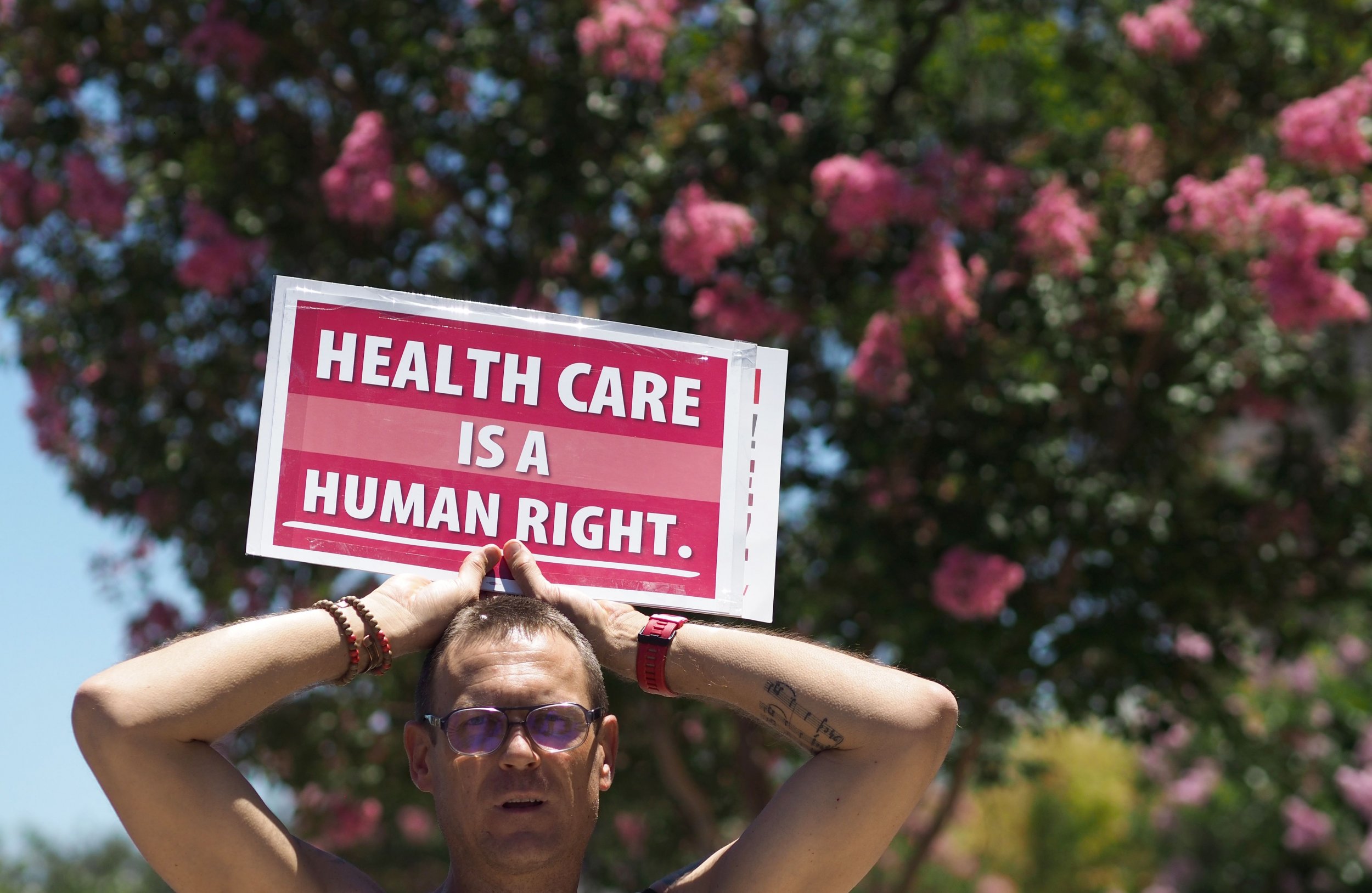
The effect that unexpected hospital bills have on Americans' decisions to declare bankruptcy may be overstated, an article published Wednesday in the New England Journal of Medicine claims—but one expert says the new numbers don't show the whole picture.
Researchers looked at credit reports of more than 500,000 people who were admitted to a hospital in California between 2003 and 2007. About 4 percent of all the bankruptcies that happened between 2002 and 2011 appeared to be related to a hospitalization—even among people who were uninsured, for whom the rate was still only 6 percent.
People did seem more likely to declare bankruptcy after going to a hospital—but not by all that much, the study found. "Rates of medical bankruptcy are much, much lower than we had thought and has been claimed," Amy Finkelstein, a health economist at the Massachusetts Institute of Technology and one of the authors of the paper, told Newsweek.
That's not to say medical bankruptcies aren't happening—four percent is more than zero. But Finkelstein and her colleagues believe focusing on bankruptcy may be missing the forest for one relatively rare tree. "We find that going to a hospital is associated with a 20 percent decline in employment and earnings over the next four years. That's just extraordinarily high," she said, referencing another recent paper. "And this is even for people with health insurance."
That's because health insurance doesn't cover some of the consequences of being sick, like missing work—which exist even in places where health insurance coverage is stronger and more widespread. "[Other researchers found] similar adverse effects on earnings and employments in Denmark," Finkelstein said. "But the big difference is that in Denmark, most of that lost earnings and employment is insured through things like sick pay and disability insurance."
That helps explain why bankruptcy is still a problem in the United States, even if it's smaller than we once thought; while the Affordable Care Act may have patched some holes in the social safety net by expanding Medicaid eligibility to cover more people, disability insurance and unemployment insurance is still weak.
"We've had a major push for health insurance coverage in the United States, and much of it was predicated on these claims," Finkelstein said. "And it turns out that that was the wrong problem to be focusing on."
Dr. David Himmelstein disagrees—in his eyes, Finkelstein and her team's methods don't really capture medical bankruptcy. Himmelstein, a professor at Hunter College's School of Urban Public Health in New York City, published his own estimate in 2009 in the American Journal of Medicine; one of his co-authors on that paper is now-Senator Elizabeth Warren (D-MA). By their estimate, nearly two-thirds of all bankruptcies are due to medical expenses. For that paper, they surveyed people who had filed bankruptcy and asked them if medical problems forced them to file.
The advantage of Finkelstein's approach—having years of real-life data, linking bankruptcies and hospitalizations that actually happened rather than asking people for a post hoc explanation—is one of its weakness in Himmelstein's eyes. "The question really is, does illness cause bankruptcy. And they only count you as having been ill if you were hospitalized. But we know that a huge number of people who were ill were not hospitalized," he said. "To say that our data is wrong is to say people lied."
He's also concerned that Finkelstein and her team's analysis, which looked only at people who had only been hospitalized once in a three year time period, leaves out a group of particularly sick people—and potentially a group that's at the highest risk of a medical bill-related bankruptcy.
Though they may disagree about the numbers, both Himmelstein and Finkelstein agree on one thing: the problem with high medical bills is not necessarily one that health insurance can solve. Though high deductible plans may strain many Americans' savings, the majority of hospital bills are already taken care of by insurance. Strengthening social safety net programs might be able to mitigate the financial impact of serious illnesses—something Himmelstein said he'd like to see. "If that's the result, that would be great," he said—but he's skeptical that Finkelstein's results will really be interpreted as an endorsement of something like a stronger disability insurance program. "I think it's much more likely that it's going to be used to scoff at the real problems that people have paying for care."
Finkelstein, at least, certainly isn't scoffing. Problems absolutely exist, but "we're saying, don't focus on bankruptcy, focus on earnings and employment," she said. "My hope, as a researcher, is that policy discussions and policy proposals are based on a better understanding of what the actual problems are."
Uncommon Knowledge
Newsweek is committed to challenging conventional wisdom and finding connections in the search for common ground.
Newsweek is committed to challenging conventional wisdom and finding connections in the search for common ground.
About the writer
Kate Sheridan is a science writer. She's previously written for STAT, Hakai Magazine, the Montreal Gazette, and other digital and ... Read more
To read how Newsweek uses AI as a newsroom tool, Click here.








